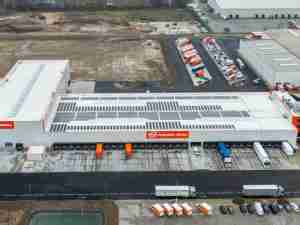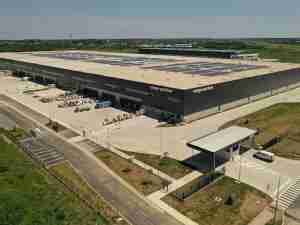CHEP and IFCO named by Kroger as key component of 2020 Zero Waste strategy
posted by AJOT | Sep 19 2016 at 10:04 AM | Logistics
Environmental attributes of reusable supply chain assets play a critical role in supporting retailer’s sustainability commitment
Atlanta, GA – September 19, 2016 – CHEP and IFCO, member companies of the Brambles Group, announced the companies’ shared pallets and bulk containers and Reusable Plastic Containers (RPCs) have been identified by Kroger[1] as critical to reducing waste in the company’s supply chain. The nation’s second largest retailer highlighted CHEP and IFCO in its 2016 Sustainability Report. By replacing more single-use packaging and platforms with reusables, Kroger aims to meet or exceed the United States Environmental Protection Agency’s zero waste threshold of 90% diversion from landfill in its facilities by 2020.
“Kroger is committed to being a positive force for change when it comes to sustainable business practices, and CHEP and IFCO play an important role in our effort to meet our zero waste goals and continuously improve the sustainability of our supply chain,” said Suzanne Walker-Lindsay, Kroger Director of Sustainability.
Kroger’s sustainability report states, “Kroger partners with CHEP and IFCO, which both contribute to global sustainability through their ‘shared’ business models of pooled pallets, bulk containers and reusable plastic containers (RPCs). These packaging solutions bring both operational efficiencies and environmental benefits. Compared with one-way packaging, reusable platforms and containers offer a lower carbon footprint, reduced water consumption and less waste.” In addition, Kroger notes its use of RPCs for fresh produce improved product quality and reduced waste by eliminating the use of more than 73,000 tons of waxed and corrugated boxes.
“We are committed to providing our customers with sustainable solutions that help them make their supply chains more efficient and environmentally friendly,” said Juan Jose Freijo, Global Head of Sustainability for Brambles. “Kroger is a valuable partner and we are pleased to contribute to their zero waste vision. Those companies working together on common goals will be the ones with the greatest impact on environmental sustainability.”
CHEP and IFCO supply chain solutions provide clear environmental benefits versus alternatives. For example, Kroger’s commitment to CHEP pallets avoided more than one million pounds of solid waste and eliminated 430 tons of carbon dioxide (CO2e), the equivalent of growing more than 41,000 trees for 10 years.[2] Separately, production of IFCO RPCs requires 65% less water and 34% less energy than one-way packaging. In addition, the use of IFCO RPCs results in a 31% reduction in greenhouse gas emissions and an 85% reduction in solid waste versus single-use cardboard boxes.[3]
Kroger, CHEP and IFCO are also members of the Consumer Goods Forum, whose members have committed to reducing food waste by half within retail and manufacturing operations by 2025, while also contributing to the United Nation’s 2030 food waste reduction goals.
Mr. Freijo concluded, “We look forward to continuing our partnership with Kroger and other retailers and manufacturers to reduce the environmental impact of the fast-moving consumer goods supply chain and to help preserve our natural resources for future generations.”
[1] National Retail Federation, 2015.
2 CHEP Sustainability Calculator.
3 Comparative Life Cycle Assessment of Reusable Plastic Containers and Display- and Non-Display-Ready Corrugated Containers Used for Fresh Produce Applications, Franklin Associates, March 2016





_-_28de80_-_d88095865f9f1cbb4ecdd37edf61c63efd603428_lqip.png)

